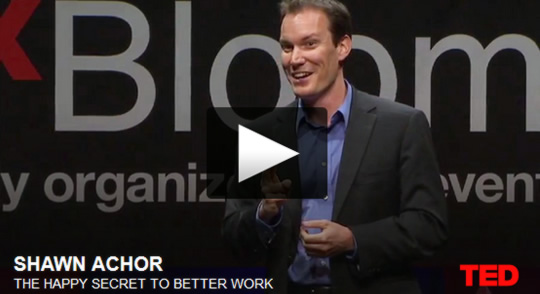How to be happy at work, at play, with our money and with our minds. The first two are among the most popular TED talks ever recorded.
1. Dan Gilbert: The surprising science of happiness
Dan Gilbert, author of “Stumbling on Happiness,” challenges the idea that we’ll be miserable if we don’t get what we want. Our “psychological immune system” lets us feel truly happy even when things don’t go as planned.
2. Shawn Achor: The happy secret to better work
Shawn Achor, author of “The Happiness Advantage“, explains why we believe that we should work to be happy, but could that be backwards? In this fast-moving and entertaining talk, psychologist Shawn Achor argues that actually happiness inspires productivity.
3. Mihaly Csikszentmihalyi: Flow, the secret to happiness
Mihaly Czikszentmihalyi, author of “Flow: The Psychology of Optimal Experience,” asks, “What makes a life worth living?” Noting that money cannot make us happy, he looks to those who find pleasure and lasting satisfaction in activities that bring about a state of “flow.”
4. Michael Norton: How to buy happiness
Michael Norton, co-author of “Happy Money: The Science of Happier Spending,” shares fascinating research on how money can, indeed buy happiness — when you don’t spend it on yourself. Listen for surprising data on the many ways pro-social spending can benefit you, your work, and (of course) other people.
5. Matthieu Ricard: The habits of happiness
What is happiness, and how can we all get some? Biochemist turned Buddhist monk Matthieu Ricard, author of “Happiness: A Guide to Developing Life’s Most Important Skill,” says we can train our minds in habits of well-being, to generate a true sense of serenity and fulfillment.
6. Daniel Kahneman: The riddle of experience vs. memory
Using examples from vacations to colonoscopies, Nobel laureate and founder of behavioral economics Daniel Kahneman, author of “Thinking, Fast and Slow,” reveals how our “experiencing selves” and our “remembering selves” perceive happiness differently. This new insight has profound implications for economics, public policy — and our own self-awareness.

